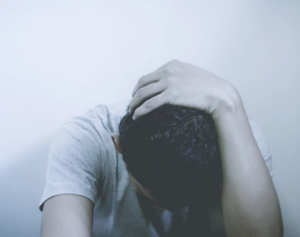The drug, commonly referred to as acid on the street, but also known as LSD, is a drug that gained notoriety in the hippy subculture of the 1960s. The drug is responsible for starting a movement that involves peace and love during an era filled with war. Those who used the drug did it as a means to escape reality and get in touch with their true selves, and it made coping with the reality of war and violence a little easier.
LSD is not a physically addictive drug, but those who use it can struggle with dependency and tolerance that produces withdrawal symptoms. Most of the time, when someone stops using the substance, it’s because they had a “bad trip,” but in some cases, a bad trip can lead to psychosis.
An addiction to LSD is rare, and it’s not something you will find often; however, this does not mean it can’t occur. Acid is popular in the rave culture, and although Ecstasy is more commonly found in this type of setting, LSD can still be found easily.
Using LSD can produce strange visions and sensations, which are known as hallucinations. They can take form in visual and auditory and trick the user into believing something is real when it is not. There have been devastating situations where individuals hallucinating on psychedelics jump from buildings, which ultimately lead to their death.
Why is LSD so challenging to abstain from, and why do some people swear by it? It has been described as bringing those stuck in their reality an option to escape and engage in spiritual and life-changing moments.
The primary concern, though, is that a dose of the drug is unpredictable. The setting in which it is taken matters, and if someone is going through issues in their lives, LSD has the strength to magnify these problems and set them off. It can lead to you to be stuck in a loop of continuous evil thoughts for hours that feels like it won’t end. It can lead to suicidal thoughts.
What Is LSD?

Lysergic acid diethylamide, LSD, is a psychedelic drug that causes a significant change in a user’s mood and perception of reality. The drug is known by many names on the street, such as booms, tabs, blotter, acid, and yellow sunshine. It causes experiences that seem real but are just hallucinations and manipulations of reality. It causes delusions, mood swings, and intense auditory & visual hallucinations.
Individuals under the influence of acid are impaired in how they think, which can lead to poor decision making. The hallucinations can cause a person to act in a threatening manner, and it can lead to self-harm or hurting someone else. The accidents, as we described above, can result in death.
LSD occurs naturally, and it is a fungus that grows on rye grain. Albert Hoffman, a Swiss pharmacology researcher, discovered the drug in 1938. The hallucinogenic factors were not identified, however, until 1943.
Effects of LSD on the Body
The experience, as with other drugs, is going to differ from one person to another based on body chemistry. The uncertainty is what makes the drug so frightening to those who have not experimented, and for those who have used the drug. LSD produces several short-term effects, and those using it can experience increased blood pressure, and a sped up heart and breathing rate.
Other Symptoms They Can Experience Include:
- Appetite loss, reduced appetite
- Clenched jaw
- Extreme Dizziness
- Cottonmouth (Inability to produce saliva)
- Excess sweating
- Elevated blood sugar
- Goosebumps
- Pupil dilation
- Sleeplessness
- Feeling numb
- Increased mucus production
- Overactive,over-responsive reflexes (known as hyperreflexia)
- Tremors (shakiness)
- Weakness
Effects of LSD on the Brain
The effects of LSD are going to vary significantly between one person to another, and this can be from how they perceive the world to their mood going into the “trip.” The most common LSD effect is visual hallucinations and illusions, which is mostly psychological. The onset of the trip can start in 20 minutes.
The high will peak at around three to four afters after being consumed, and it can last up to 12 hours. Those who enjoy their trip report euphoria and a disconnection from reality. Others report losing a sense of time and a lack of focus, including visuals that occur, with opened or closed eyes. Some go as far as saying they’ve had life-changing experiences as a result of the drug. It is common to hear them describe seeing vibrant colors, shapes, and patterns.
Not everyone who uses acid will experience a good trip. There are much more intense side effects, which can be followed by anxiety, paranoia, mood swings, irrationality, and suicidal ideation. Of 10,000 people that participated in a study, only a few suffered from complications of LSD use. Despite this, it should still not be used regularly without expecting consequences.
Can LSD Cause Psychosis?

If you are someone with an underlying mental health disorder, you are at more significant risk when taking mind-altering psychedelic drugs. LSD use can cause severe psychological issues and long-lasting damage that cannot be repaired. The disorders at highest risk of being exacerbated by LSD include personality disorder, schizoid personality disorder, and narcissistic personality disorder.
While the relief from reality may be temporary, the long-term consequences can make someone act out because of their personality changes. The mood swings can cause strained relationships, precarious finances, or other problems such as legal issues.
LSD use can push someone into needing help. It may not seem possible, but the drug can force someone to spiral out of control without them even seeing it happen. Addiction to the drug is not common, but it does occur through repeated use. It’s imperative to get help to prevent adverse events from occurring. It takes one unfortunate trip to change the course of your life, and getting immediate help can change your life for the better.
If you or someone you know has been struggling with a dependence on LSD, Serenity at Summit wants to help. You will need to be admitted to medical detoxification while the drug exits your system and for psychiatric evaluation. The addiction specialists will then decide what course of action best suits your needs, which could mean outpatient treatment. If you want to gain control of your life back, give us a call today.
Call Serenity at Summit for LSD Dependence Today
LSD dependence can result in changes to your personality, which then alters your life. While most of us don’t anticipate getting hooked on a drug that once helped us, it does occur. In the event you do, it’s imperative you get the help you need to correct the problem.
Serenity offers a smooth transition back into your life through therapies and dedicated care designed at stabilizing you as a whole. Contact us immediately.
(1983, August). LSD psychosis or LSD-induced schizophrenia? A multimethod inquiry. Retrieved from https://www.ncbi.nlm.nih.gov/pubmed/6870484
Brain on LSD revealed: First scans show how the drug affects the brain. (2016, April 11). Retrieved from https://www.sciencedaily.com/releases/2016/04/160411153006.htm
(2014). “My friend said it was good LSD”: A suicide attempt following analytically confirmed 25I-NBOMe ingestion. Retrieved from https://www.ncbi.nlm.nih.gov/pmc/articles/PMC4220298/
Man jumps from MKE building after taking LSD. (2017, July 06). Retrieved from https://www.tmj4.com/news/local-news/man-jumps-from-milwaukee-building-after-taking-lsd
Hartney, E. (2019, April 24). What Is a Bad Trip? Psychedelic Drugs Can Induce Fear or Distress. Retrieved from https://www.verywellmind.com/what-is-a-bad-trip-22071


